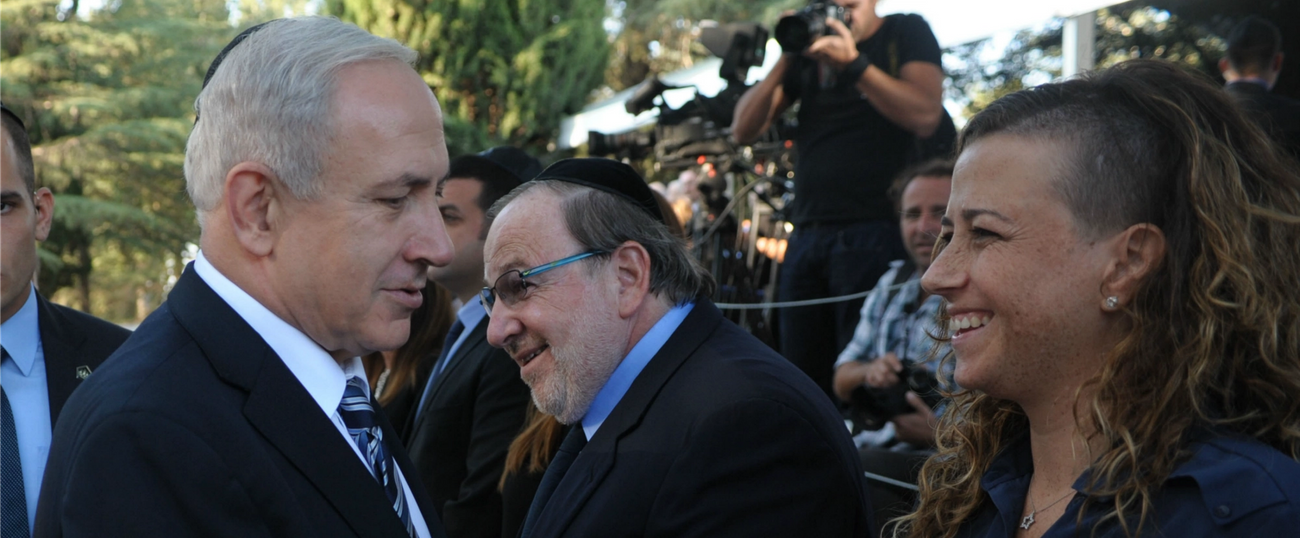Yitzhak Rabin’s Legacy Must Be Politicized and the Israeli Right Held Responsible
A response to Liel Leibovitz’s criticisms of the Israeli left argues that it was actually the right’s ‘tyrannical aspirations’ that destroyed Israel’s national unity




As this week marks the anniversary of Prime Minister Yitzhak Rabin’s assassination 23 years ago, it is an occasion to reflect on the meaning that his life and death have taken on in Israel’s public life and the ways his name has been put to political use. In an article from Oct. 22, for instance, Tablet’s Liel Leibovitz mourned the loss of the supposed national unity that brought Israel together in the aftermath of Rabin’s death. This, he says, is due to the actions of the Israeli left in general, and the former PM’s grandchildren, Yonathan Ben-Artzi and Noa Rothman, in particular. They spread fake news, he says; they have no respect for democracy. They are prime examples of why the left in Israel and in the United States is losing ground. Reality begs to differ. Contempt for democracy, disregard for its institutions, spreading of fake news and blatant disregard of the truth are the bread and butter of many a political faction in Israel and in the U.S. but they all belong to the ruling political right.
As evidence of the strength of Israeli democracy, Leibovitz produces several examples. First, he notes the Israeli supreme court’s decision to allow former BDS activist, Lara Alqasem, to enter and study in it. He elects, however, to ignore all the events leading up to this decision. The fact that Ms. Alqasem declared that she has left BDS. Her decision to come study in Israel, which clearly contrasts the very foundation of boycotting and sanctioning it. Her near-three-week detention at the airport because an American NGO (Canary Mission) singled her out before the Israeli Ministry of Strategic Affairs—indeed, an imminent threat to Zionism if ever I did see one. Leibovitz also ignores the fact that the same supreme court on whose decisions he relies is under constant pressure from an Israeli government seeking to subordinate the court.
Second, Leibovitz expresses frustration over the prominent activism of foreign-funded “radical left-wing organizations.” The proliferation of right-wing NGOs, heavily funded by evangelical Christians and hardcore conservative Jewish tycoons such as Sheldon Adelson, however, escapes him. As do laws, recently passed, that proclaim such NGOs “fifth columns” and “foreign agents,” and try to stop their funding, prevent their activism and silence them altogether. Even the fact that many prominent politicians in Israel, from Ayelet Shaked to PM Netanyahu, receive significant contributions from foreign millionaires seems to be a nonissue. Does MK Stav Shaffir’s incredible 99 percent Israeli-sourced record mean anything, then? Not so much. She’s a lefty, after all.
Finally, Leibovitz mentions the ongoing investigations of PM Netanyahu, which “failed to lead to a conviction.” The fact that only a few weeks ago most investigations were concluded, that the police has already recommended indicting Netanyahu on some of the issues, or that two former PMs, Rabin in 1977 and Olmert in 2009, have resigned in the past before they were even indicted—all of these seem to escape his attention somehow. The same is true for the string of bills proposed by Likud members of Knesset who suggest anything from granting retrospective amnesty to suspending any scrutiny of a governing PM until after he leaves office, as they strive to subordinate the rule of law to the rule of Netanyahu. Ah, democracy!
Leibovitz accuses the persons whose grandfather was taken by gunshot (though he insists that Rabin merely “died,” instead of using the more accurate “assassinated”) on being anti-democratic. Why? Because they dare speak the truth. He begrudges their ungratefulness and disdain for the right’s tyrannical aspirations, which he confuses for majority rule. He is angry over their making of Rabin’s memory into a political one but ignores the fact that the former two-time PM was murdered by a Jewish right-wing extremist for his political beliefs.
Like Netanyahu, like many others on the Israeli right, Leibovitz wants us to remember that Rabin died, but that’s it. That he was murdered because he tried to do what he thought was right, and that ever since his assassination the right has done all that’s within its power to bring democracy to its knees, either by limiting free speech, preparing a potential annexation of the West Bank, or passing a plethora of nationalistic laws, is, like Netanyahu himself told a protester last week, “not interesting.” Neither is the image of Netanyahu, standing on that balcony over Zion Square in Jerusalem, looking at a heated crowd shouting “Rabin is a traitor” while parading his photo in SS uniform. Nor his leading of a right-wing rally in Ra’anana junction, where a coffin with Rabin’s name and the inscription “Zionism’s undertaker” took center stage.
Let us celebrate our unity in remembering Yitzhak Rabin, Leibowitz says. Just, don’t bore us, or worse, annoy us, with petty issues like the reason he was assassinated, or the very fact that he was, or anything having to do with the politics of it all. That doesn’t fare well with our agenda.
Ido Dembin is a Tel-Aviv educated lawyer and political activist, and a blogger for “Ha’aretz” online. A recent alum of Columbia University, he is currently working as the Senior Law Program Manager for itrek, an Israeli-American NGO, in New York City.